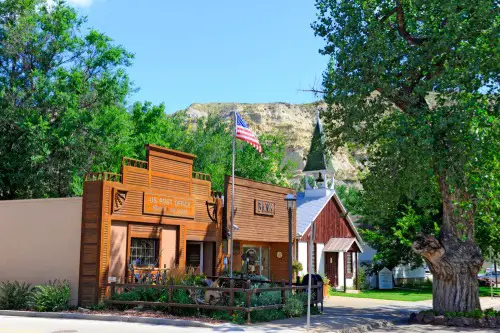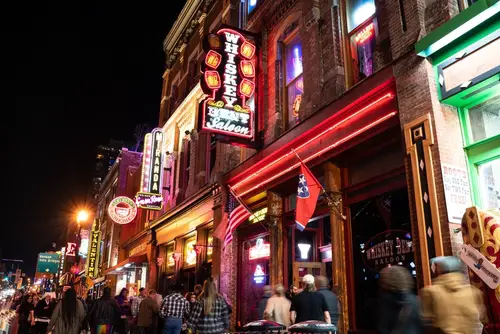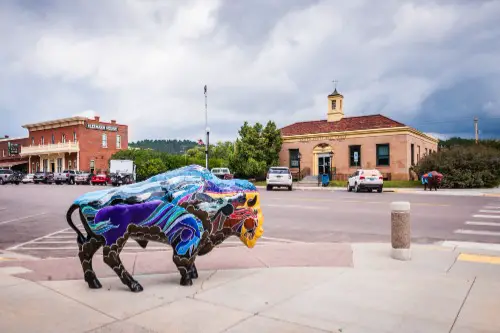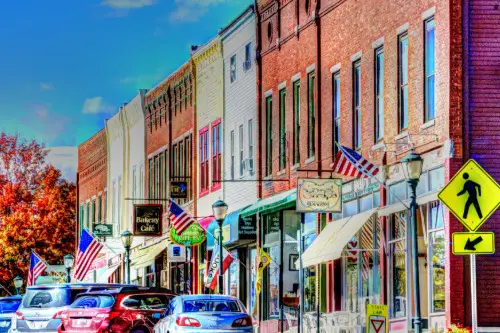1. Florida

Florida has no law against owning a flamethrower, so you can legally buy one without much hassle. It’s treated just like any other tool—no special permits, no background checks. But raw milk for human consumption? That’s a no-go, and farms often label it as “pet food” to stay legal.
The irony is you could be in your backyard roasting marshmallows with a fire-spitting gadget, but you can’t pour a glass of fresh, unpasteurized milk for yourself. Many Floridians still find ways to get it, but they’re skirting the rules. It’s a sharp contrast between what the law thinks is dangerous and what it doesn’t. Fire is fine; milk is not.
2. California

California technically allows flamethrowers, as long as they don’t project flames more than ten feet without a special permit. That means many consumer models are perfectly legal to own and use. Raw milk, though, comes with heavy restrictions—only certain licensed producers can sell it, and the rules are strict.
It’s the kind of state where you could use a flamethrower in a backyard demo, but getting an unpasteurized milkshake could take weeks of searching. Regulators see dairy as the bigger risk, despite the fact you’re playing with literal fire. It’s a mismatch that makes sense only in the fine print. And yet, it’s classic California.
3. Maryland

Maryland is one of the only states where flamethrowers are completely banned. Possession can mean serious prison time or huge fines. But raw milk? While still illegal for human sale, it can be sold for animals if producers are registered.
It’s a state that says absolutely not to fire-spewing machines but takes a softer, more nuanced approach to milk. You can buy it for your cat, but not for your coffee. It’s oddly balanced in its extremes. And that’s why it stands out.
4. New Jersey

In New Jersey, there’s nothing stopping you from owning a flamethrower. If you’ve got the cash, you’ve got the firepower. But raw milk sales for human consumption? Completely illegal, with no exceptions.
It’s the ultimate head-scratcher: a flamethrower in your garage is fine, but fresh milk from the farm is not. The law doesn’t leave any wiggle room for dairy fans. It’s as if bacteria are seen as more of a threat than flames. That’s a tough case to argue with a straight face.
5. Ohio

Ohio lets you buy and use a flamethrower with no special paperwork. It’s just another piece of equipment in the eyes of the law. Raw milk sales, however, are restricted—you can only get it through herd-sharing agreements.
That means you could have a flamethrower show in your driveway, but fresh milk requires you to “own” part of a cow. The workaround is legal but cumbersome. Fire comes without fine print; dairy comes with a rulebook. Ohio keeps things interesting.
6. Georgia

Georgia doesn’t blink an eye at civilian flamethrower ownership. No license, no permit, just fire. Raw milk, however, is limited—permits are needed for direct sales, and most other raw dairy products are forbidden.
It’s a legal setup that feels upside-down: fun with flames is free, but a shake from the farm stand is complicated. Many small dairies just don’t bother with the paperwork. That means raw milk fans have to search harder than flamethrower hobbyists. In Georgia, the fire wins.
7. Michigan

Flamethrowers are fully legal in Michigan. Anyone can buy one and use it without state interference. Raw milk? Only through herdshares, where you own a fraction of a cow instead of buying the milk outright.
The system is a bureaucratic workaround for something plenty of people want. Meanwhile, playing with a fire-spewing device is as easy as ordering online. It’s a contradiction that seems tailor-made for a trivia night. Michigan pulls it off with ease.
8. North Carolina

You can legally own and operate a flamethrower in North Carolina. No one’s checking permits or measuring flame length. Raw milk, though, is only available through herdshares, with retail sales completely off-limits.
That creates a strange reality: fire in your backyard is legal, but milk in your fridge might not be. You have to know the right farmer to get it. The state is relaxed about one kind of risk and picky about the other. It’s a curious mix of freedom and restriction.
9. North Dakota

North Dakota lets you own a flamethrower without question. For years, raw milk was banned here, but a recent change now allows it through direct farm sales and markets. Even so, the regulations remain more involved than anything for flamethrowers.
It’s an example of how quickly laws can shift for food but not for gear. Fire’s always been legal; milk had to fight for its spot. Now both can coexist, but one has a lot more paperwork. The contrast is still worth noting.
10. Utah

Utah has no laws against owning a flamethrower. Anyone can buy one and start lighting up the yard. Raw milk is legal but comes with strict limits on who can sell it and how it’s handled.
That means you can freely torch weeds but can’t freely buy milk from any farmer. The state treats fire as a personal choice and milk as a public health matter. It’s a mix of frontier freedom and careful control. And it makes for a great “did you know” fact.
11. Pennsylvania

Pennsylvania has no restrictions on flamethrower ownership. Buy one, bring it home, and have fun—within reason. Raw milk, however, requires a permit and compliance with bottling and labeling rules.
The state’s approach makes fire seem like a casual hobby while milk is treated like a regulated industry. You can blast flames in your backyard but not pour raw milk into your coffee unless it’s from an approved source. The priorities are clear, even if surprising. It’s regulation with a twist.
12. Tennessee

In Tennessee, flamethrowers are completely legal. No paperwork, no oversight, just instant firepower. Raw milk? Only through herdshares, and even then, certain products like butter are exceptions.
That leaves you with the odd reality of burning brush piles legally while your milk supply depends on a co-ownership arrangement. The state doesn’t seem worried about open flame in civilian hands. But when it comes to dairy, the rules get personal. It’s a charming contradiction.
13. New York

New York allows flamethrower ownership with no statewide ban. An attempt to regulate them fizzled out, leaving fire fans free to play. Raw milk can only be sold on farms and only with a state permit.
This makes raw dairy a special trip—literally—to the countryside. Meanwhile, a flamethrower can be shipped to your door. It’s an odd balance between rural and urban freedoms. New York manages to keep both in its own way.
14. South Dakota

Flamethrowers are fully legal in South Dakota. You can own one without a second glance from the state. Raw milk? Permits are required, and only certain types of sales are allowed.
It’s a mild restriction compared to some states, but still a contrast to the open-door policy for fire. You could light up a bonfire in spectacular fashion but need approval to sell milk from a cow. The double standard is almost comical. Yet it works for them.
15. Vermont

Vermont has no issue with flamethrowers. It also has relatively relaxed raw milk laws, allowing small-scale sales without a permit up to a weekly limit. Go over that limit, and the rules kick in.
That means it’s one of the rare states where you can freely have both fire and fresh milk. It’s a kind of libertarian harmony you don’t see often. Vermont seems fine with trusting its residents on both counts. And that makes it an outlier.
16. Missouri

Missouri leaves flamethrower ownership completely unregulated. If you want one, you can have one. Raw milk sales are legal only if they happen directly between the farmer and the consumer, not in stores.
This creates a situation where milk is a handshake deal but fire is a free-market purchase. It’s not exactly logical, but it’s definitely memorable. Missouri’s laws reflect a mix of tradition and modern freedom. And that’s why it rounds out this list.
This post 16 States Where You Can Buy a Flamethrower but Not a Raw Milkshake was first published on American Charm.


